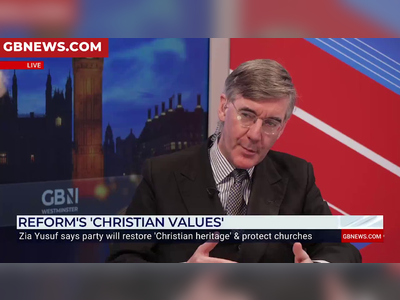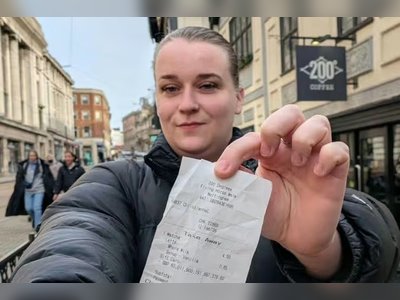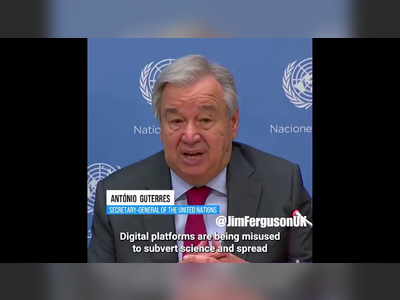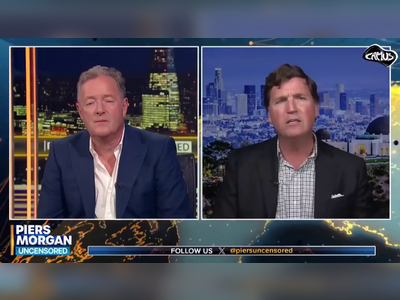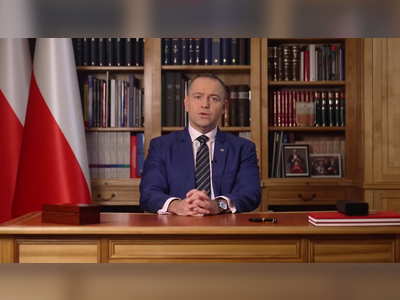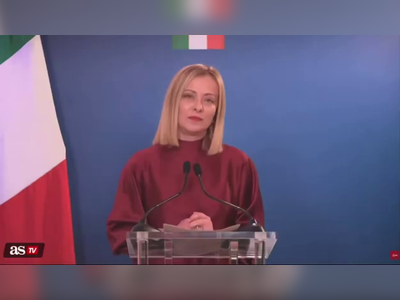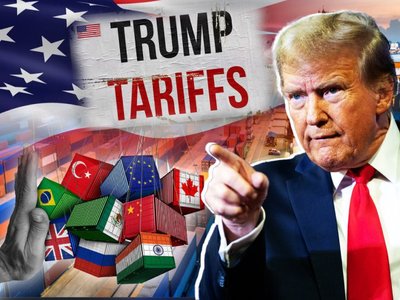Netherlands Grapples with Surge in Explosive Attacks: Minister Van Weel Sounds the Alarm
Minister Van Weel urges national action as Dutch cities face unprecedented wave of explosive incidents, likening them to grenade attacks.
In recent days, the Netherlands has witnessed a disturbing escalation in violent explosions that challenge the conventional narrative surrounding fireworks.
Minister Van Weel, responsible for Justice and Security, expressed grave concern following an alarming incident in Purmerend, where a residential property was consumed by fire, leaving one individual severely injured.
Tragically, this follows closely on the heels of a catastrophic explosion in The Hague that claimed six lives and injured several others.
Minister Van Weel vehemently argues that these incidents should not be dismissed as mere firecracker pranks.
'These are akin to hand grenades placed at the doorsteps of unsuspecting citizens.
The ramifications have been catastrophic, and it is only a matter of time before an even worse tragedy occurs,' he warns.
His stark assessment comes amidst rising calls for a cohesive national strategy to address the menace posed by these explosives.
During a recent community engagement session in Purmerend, affected residents directed their demands for action towards national policymakers.
Mayor Van Selm joined the chorus, advocating for a comprehensive nationwide framework to tackle the crisis.
Taking action, Minister Van Weel has outlined several strategic interventions already in motion.
He plans to classify 'cobras,' a specific kind of explosive, under the firearms and ammunition statute in the coming year.
This move is part of a broader effort to stem the tide of explosive-related incidents.
A nationwide taskforce has also been established to confront the issue head-on.
This taskforce consolidates efforts from a diverse coalition, including municipal authorities, law enforcement agencies, the public prosecutor's office, business leaders, and housing associations.
The aim is to forge a robust network for effective data sharing and collaborative solution-finding.
'We are exploring innovative and interdisciplinary avenues to understand the root causes of this problem,' Minister Van Weel explained.
'We also intend to investigate why the Netherlands, in particular, is experiencing such a surge and how we can reverse this troubling trend.'
Focusing on prevention is at the heart of the taskforce’s mission, but they are also examining stricter punitive measures to deter potential perpetrators.
'Increased penalties often serve as a deterrent, and we aim to raise that threshold,' he added.
Although the notion of a blanket fireworks ban finds little favor with Minister Van Weel, he does not close the door on further legislative measures.
'Explosive events are no longer confined to festive periods.
They occur year-round across various Dutch locales.
This is a distinct phenomenon that must be treated separately from traditional fireworks,' he emphasizes.
The proliferation of explosive incidents has been alarming.
Since 2017, the frequency of such events has surged, with a 200 percent increase recorded in 2023 compared to the previous year, and the trend shows little sign of abating.
More municipalities are now confronting this emerging threat.
Despite these developments, the majority within the Dutch House of Representatives opposes a complete ban on fireworks, instead advocating for more rigorous enforcement of existing laws.
PVV leader Wilders also underscores that the current crisis is unrelated to legal fireworks.
'Heavy fireworks are essentially already outlawed.
Any loud explosion you hear is likely illegal,' he states.
In response to the widespread use of illegal fireworks in these incidents, several mayors have proposed a European-wide prohibition on the production of heavy fireworks, highlighting a growing consensus on the need for transnational cooperation in addressing the problem.
Minister Van Weel, responsible for Justice and Security, expressed grave concern following an alarming incident in Purmerend, where a residential property was consumed by fire, leaving one individual severely injured.
Tragically, this follows closely on the heels of a catastrophic explosion in The Hague that claimed six lives and injured several others.
Minister Van Weel vehemently argues that these incidents should not be dismissed as mere firecracker pranks.
'These are akin to hand grenades placed at the doorsteps of unsuspecting citizens.
The ramifications have been catastrophic, and it is only a matter of time before an even worse tragedy occurs,' he warns.
His stark assessment comes amidst rising calls for a cohesive national strategy to address the menace posed by these explosives.
During a recent community engagement session in Purmerend, affected residents directed their demands for action towards national policymakers.
Mayor Van Selm joined the chorus, advocating for a comprehensive nationwide framework to tackle the crisis.
Taking action, Minister Van Weel has outlined several strategic interventions already in motion.
He plans to classify 'cobras,' a specific kind of explosive, under the firearms and ammunition statute in the coming year.
This move is part of a broader effort to stem the tide of explosive-related incidents.
A nationwide taskforce has also been established to confront the issue head-on.
This taskforce consolidates efforts from a diverse coalition, including municipal authorities, law enforcement agencies, the public prosecutor's office, business leaders, and housing associations.
The aim is to forge a robust network for effective data sharing and collaborative solution-finding.
'We are exploring innovative and interdisciplinary avenues to understand the root causes of this problem,' Minister Van Weel explained.
'We also intend to investigate why the Netherlands, in particular, is experiencing such a surge and how we can reverse this troubling trend.'
Focusing on prevention is at the heart of the taskforce’s mission, but they are also examining stricter punitive measures to deter potential perpetrators.
'Increased penalties often serve as a deterrent, and we aim to raise that threshold,' he added.
Although the notion of a blanket fireworks ban finds little favor with Minister Van Weel, he does not close the door on further legislative measures.
'Explosive events are no longer confined to festive periods.
They occur year-round across various Dutch locales.
This is a distinct phenomenon that must be treated separately from traditional fireworks,' he emphasizes.
The proliferation of explosive incidents has been alarming.
Since 2017, the frequency of such events has surged, with a 200 percent increase recorded in 2023 compared to the previous year, and the trend shows little sign of abating.
More municipalities are now confronting this emerging threat.
Despite these developments, the majority within the Dutch House of Representatives opposes a complete ban on fireworks, instead advocating for more rigorous enforcement of existing laws.
PVV leader Wilders also underscores that the current crisis is unrelated to legal fireworks.
'Heavy fireworks are essentially already outlawed.
Any loud explosion you hear is likely illegal,' he states.
In response to the widespread use of illegal fireworks in these incidents, several mayors have proposed a European-wide prohibition on the production of heavy fireworks, highlighting a growing consensus on the need for transnational cooperation in addressing the problem.
